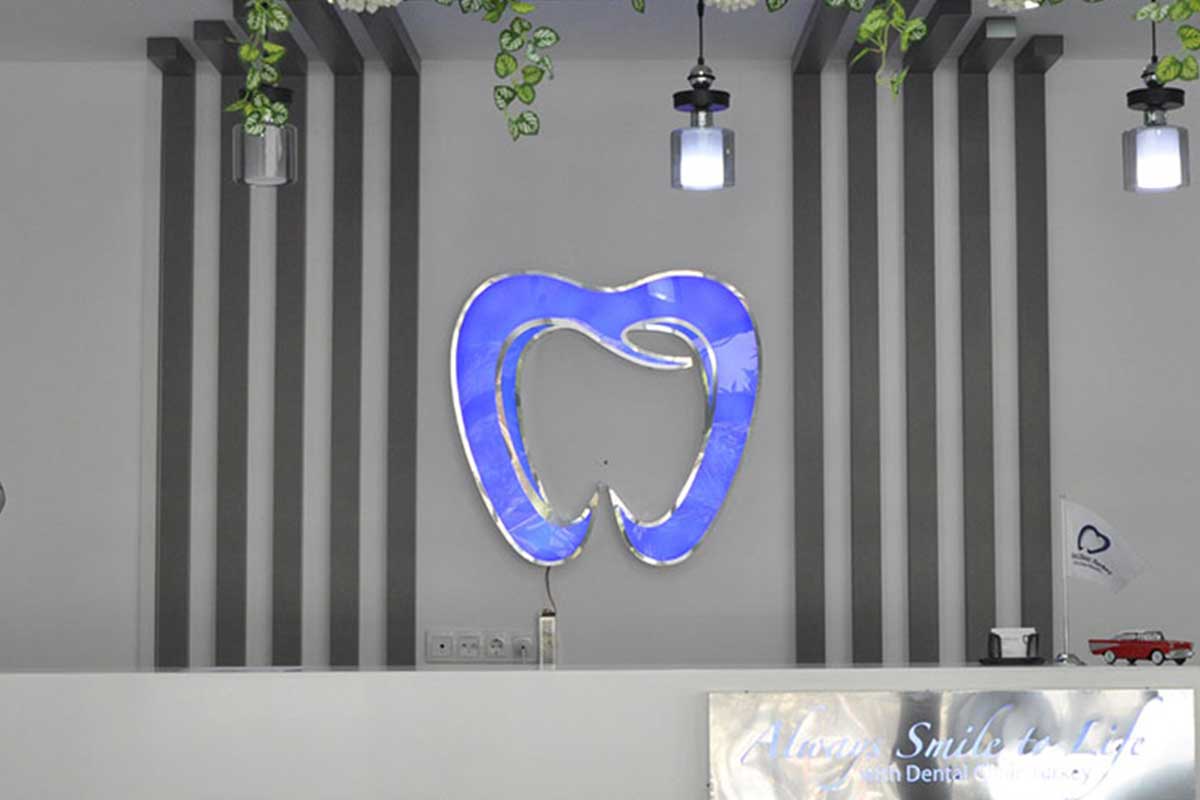Implant treatment has become the most preferred method today in case of tooth deficiency. This application, which is an extremely attractive option especially for those who do not want to use prosthetic teeth, can achieve satisfactory results. We can say that the implant is one of the procedures completed in a comfortable process for the patient.
We will clarify all the questions about this special method developed against the problem of missing teeth. We will also examine issues such as whether the implant is painful or not, whether it can be applied to all teeth. But first, let’s talk about the number of sessions, which is a frequently asked subject.
How Many Sessions Required for Implant Treatment?
Of course, it is wondered how many sessions are required for implant tooth construction. The number of sessions may vary depending on how many implants will be made. At the same time, we can say that the patient’s bone quality is a determining factor in the number of sessions. Because if the bone quality is not sufficient, first of all, bone grafting should be done. Then the patient has to wait for a while, which may continue for several weeks, although it is not the same for every patient. After that, the implant process starts. In this case, the number of sessions will be more.
If the bone quality of the patient is sufficent, it is possible to perform the implant procedure immediately. Routine dental check-ups must be made after the implant procedure. We should also mention that it is a treatment method that the patient can easily adapt to. It is possible to benefit from all the functions of the teeth without the need for any adaptation process. Moreover, in this process, there are no problems that force the patients. After the examination, your dentist will inform you about the estimated number of sessions.
How Is Implant Tooth Made?
Of course, patients also wonder how the implant tooth construction process takes place. We can state that this process can be done in 4 different ways in general. In the first method, the tooth that cannot be repaired, needs to be extracted. The implant is placed immediately in the space formed in the place of the extracted tooth. We can state that this first method is the most practical for the patient as well as the dentist. In addition, there is no need to make any incisions or stitches.
Another method of implant tooth construction is known as the ‘closed technique’ among the people. In this method, the filep is not opened, so there is no need to cut the patient’s tissue. A small cavity needs to be created using laser technology. Implant is placed in this cavity and thus it is possible to complete the procedure. We can say that this method comes into play in cases where the patient’s bone tissue is suitable. It is a very comfortable method because it is completed in a single step.
The third method is applied when it comes to mini-implants. For this method, which involves direct implant application over the mucosa, the patient’s bone quality must be sufficient. We cannot say that it is a method that is frequently preferred today, but it can be applied if the patient’s mouth and jawbone condition is ideal.
Implant tooth construction with the fourth method is also the most well-known method in the society. This method, which is classically performed with surgical intervention, is also the most preferred. In this method, a small gap is opened in the patient’s jawbone with surgical intervention. An implant is placed in this space. The prosthetic tooth is placed on the implant, sometimes immediately or about a week later. This completes the process.
Of course, in order for these methods to be applied successfully, the patient’s bone quality must be suitable for the procedure. If the bone quality is not good enough, then bone grafting is needed beforehand. In case patients apply for implant tooth construction, the dentist decides which method will be preferred after procedures such as examination and x-ray.
Does Implant Treatment Hurt?
There may be misconceptions about implant tooth construction among the public. One of them is that the procedure is very painful, which cannot be true. Because before the procedure, the area to be intervened with local anesthesia is absolutely numbed. It is never preferred to perform this procedure without anesthesia. Therefore, no matter which area the implant is to be implanted, the patient does not feel any pain, aches or pains during the procedure. Since this area is numb, it is not possible to hurt.
However, after the procedure, it is possible to have a slight ache or pain after the effect of the anesthesia wears off. This is quite normal and it should not be forgotten that the pain felt is temporary. With the use of painkillers prescribed by the dentist, it is possible to control the pain in question. Most of the time, patients talk about a mild pain that does not even need to drink medicine. Therefore, the pain felt after the procedure is not severe enough to disrupt daily life or business life.
Can All Teeth Be Implanted?
If the patient has no teeth, total implant tooth construction can be performed. However, of course, there must be sufficient bone tissue in the jawbone. There are also alternative procedures that can be applied if there are no teeth in the mouth. We can give examples of bridge, removable prosthesis or partial prosthesis to these treatment options. How many implants should be placed in patients with no teeth is also among the issues that are wondered.
If 8 implants are placed in one jaw, it is possible to fit all teeth. However, it should be noted that this number may vary depending on the mouth structure of the patient. After the examination, you can get more information about implant tooth construction and how many implants will be used in case of no teeth.
Please Read –> All on 6 Dental Implant Surgery
How is the prosthesis attached to the implant?
First of all, it should be noted that a specially developed and screw-like material is used in the implant tooth construction process. After this material is fixed, it is applied on the prosthetic tooth. Thanks to the special apparatus that adheres to the attachments on the material, it is possible to use these teeth without any problems, just like natural teeth. There is no problem during actions such as talking or eating. At the same time, patients do not have to worry about the prosthetic teeth coming out. These features are among the reasons why this process is preferred more and more day by day.
Is There Pain During Implant Application?
Like many dental treatments, the area is numbed before the implant tooth is made. Anesthetizing this area with local anesthesia prevents the feeling of pain during the procedure 100%. Therefore, patients do not feel any pain or pain during this whole process. Although many people have missing tooth problems, they do not benefit from this application due to the fear that the procedure will be painful. However, it is not a painful procedure as it seems.
Of course, there may be a very slight ache or pain after implant tooth construction. However, let us state that this situation is medically quite normal, and we should not worry about it. Most of the time, this mild pain goes away on itself after hours. In rare cases, it may continue for a few more days.

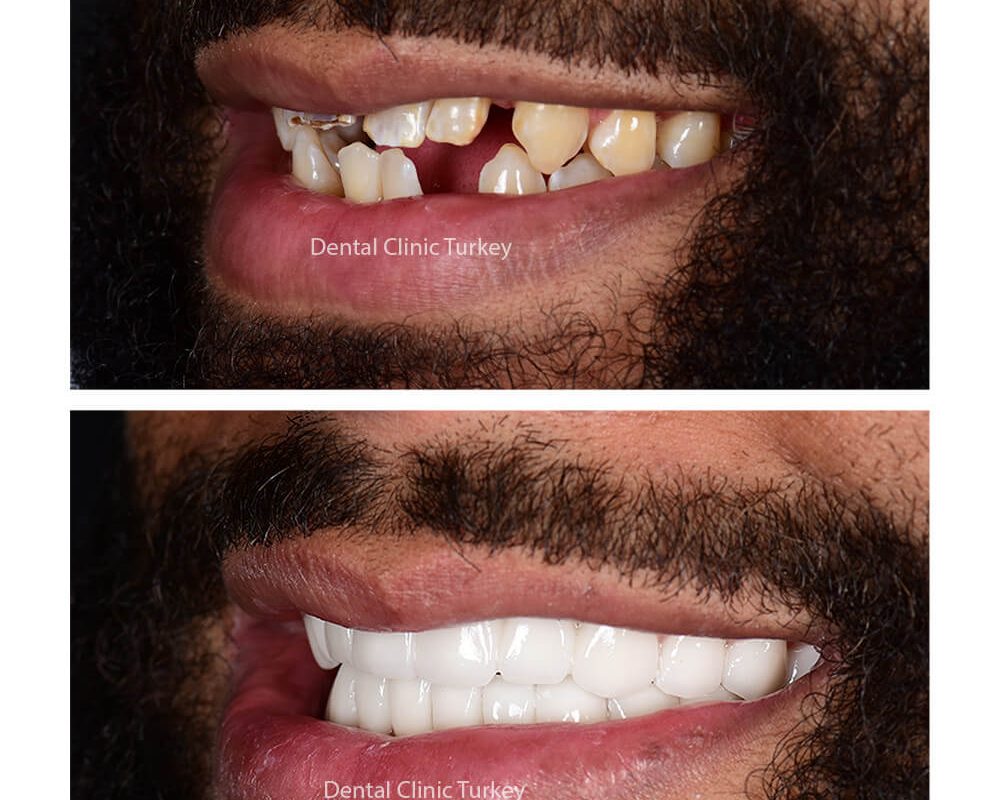
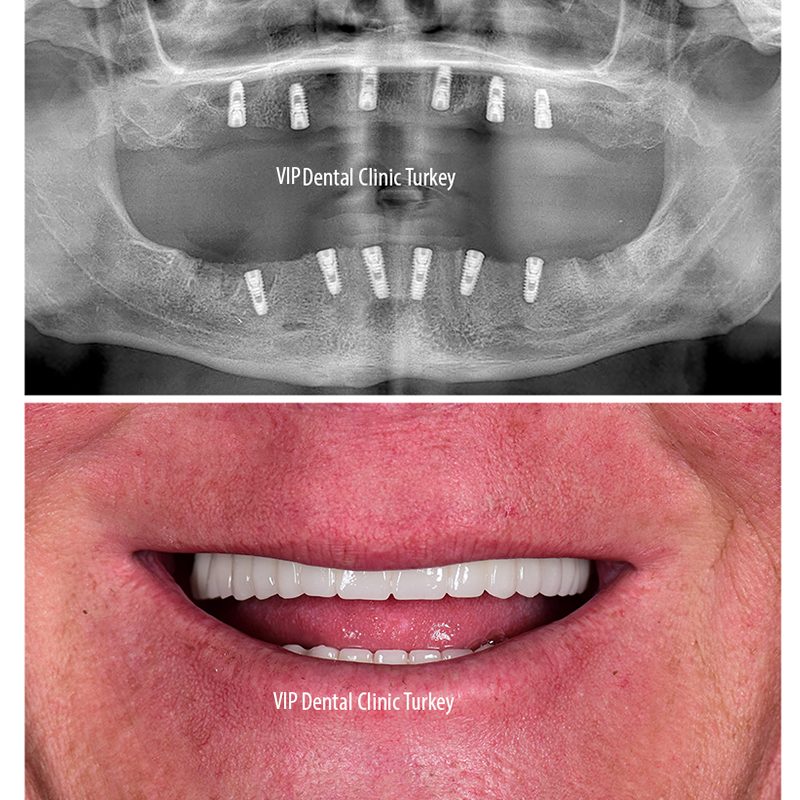
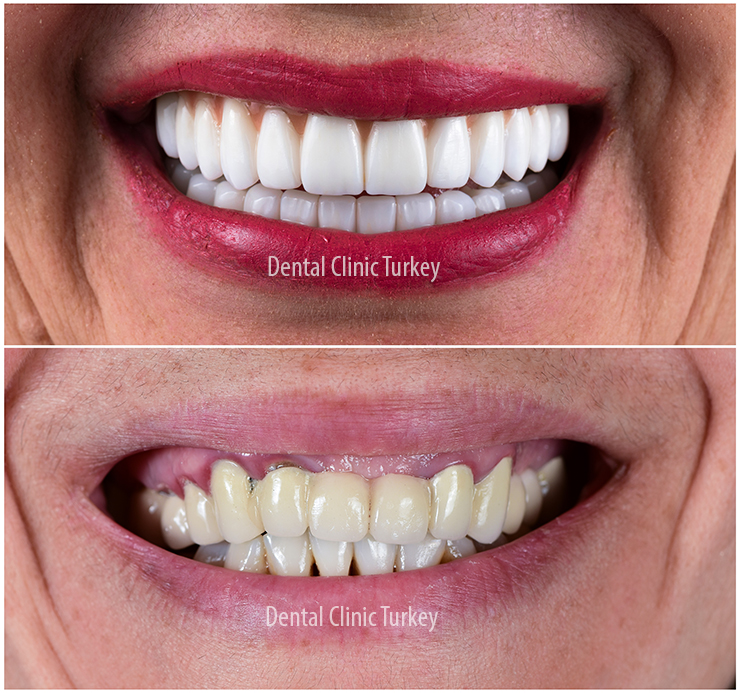
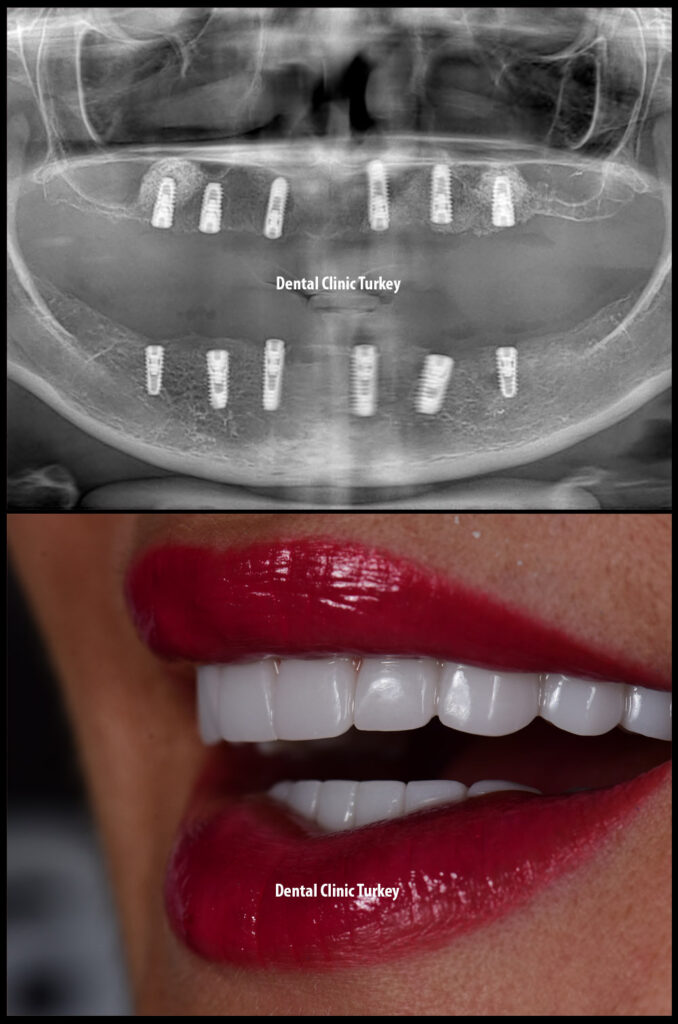
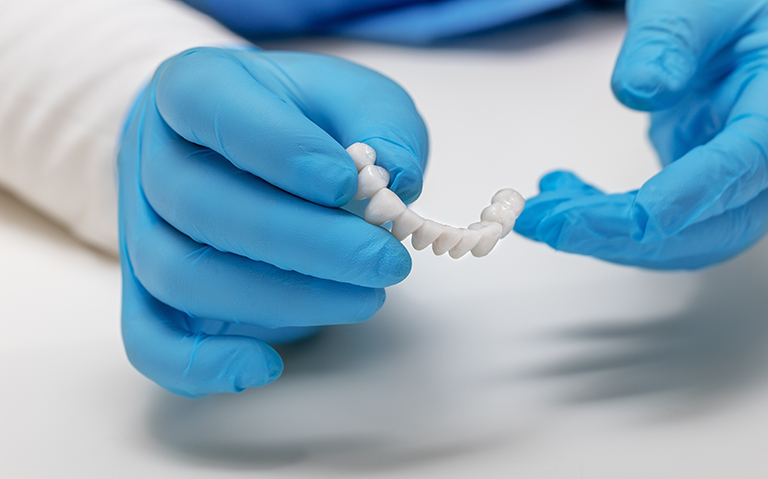

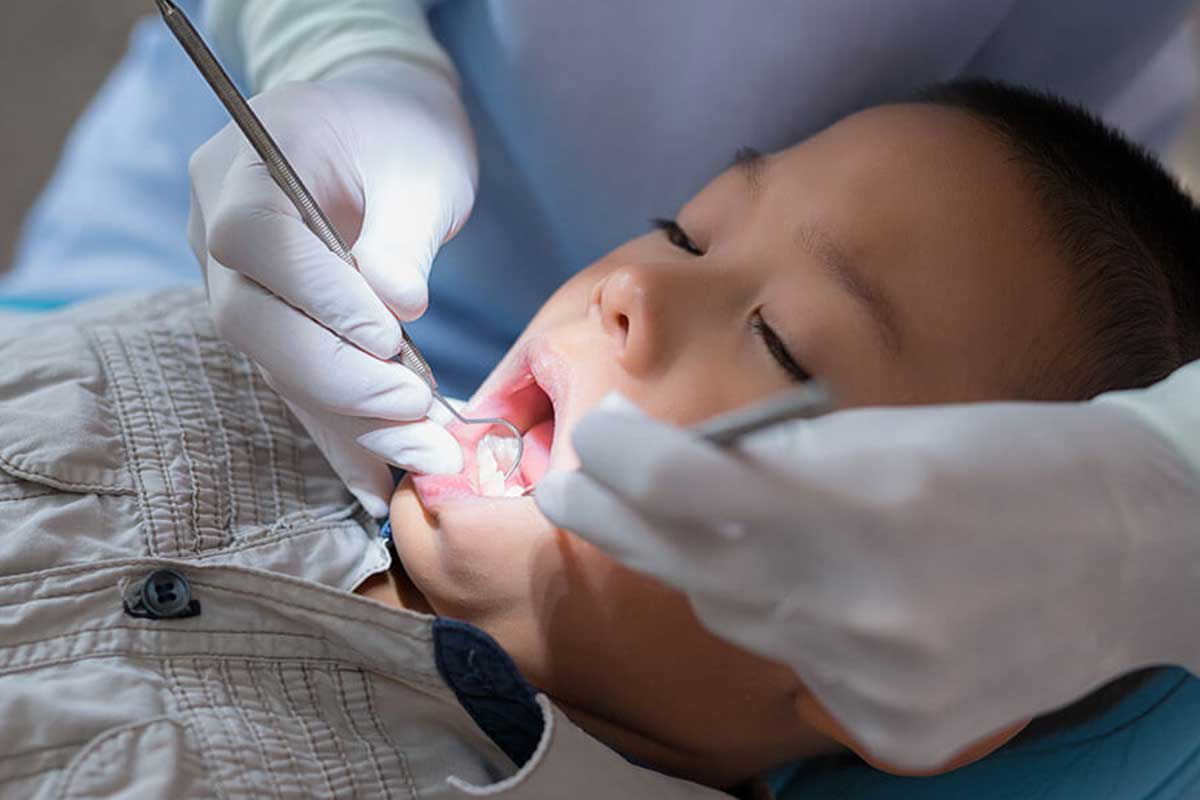
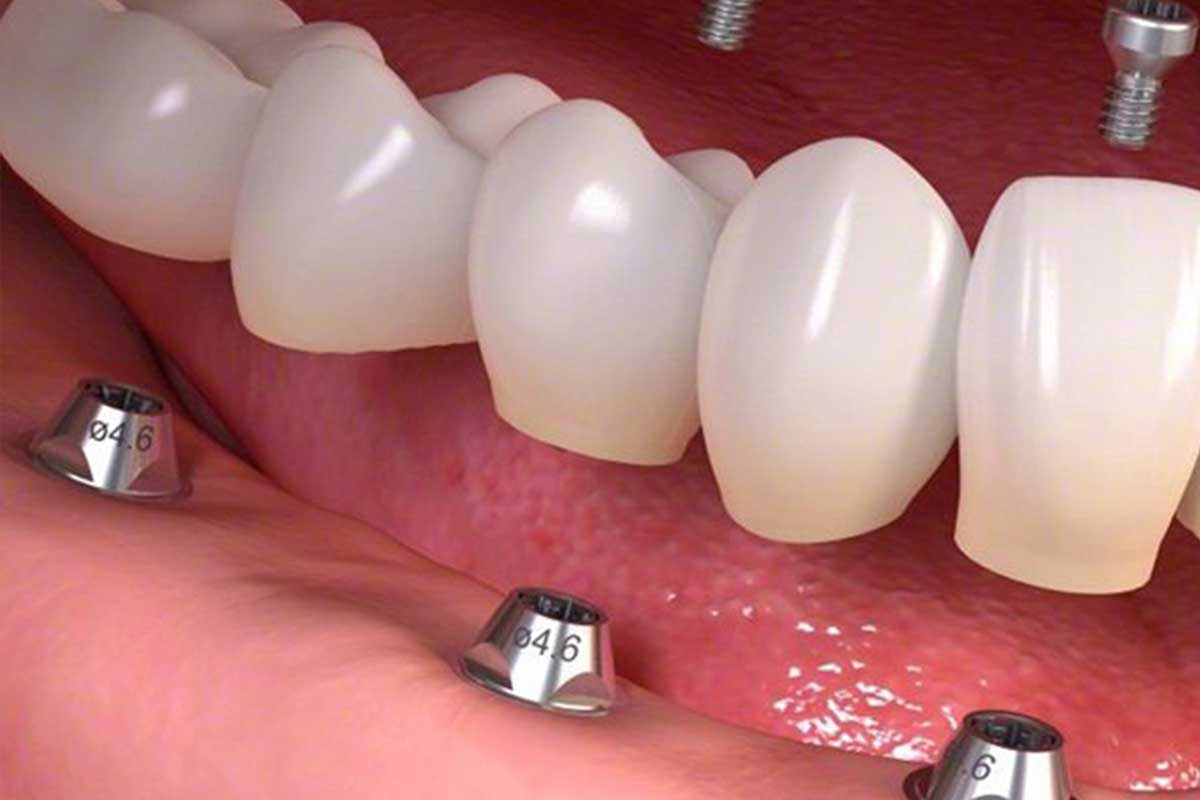
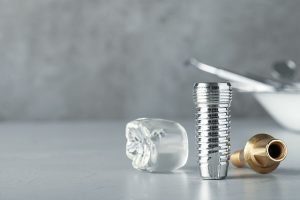 Implant care is an issue that should be focused on sensitively after tooth transplantation. Implants are artificial carrier tooth roots that are attached to the jawbone instead of the tooth root. After the implant process is completed, the patient wants a tooth in the type and model that he/she likes to be mounted on the implant. This veneer can be a porcelain or zirconium type product.
Implant care is an issue that should be focused on sensitively after tooth transplantation. Implants are artificial carrier tooth roots that are attached to the jawbone instead of the tooth root. After the implant process is completed, the patient wants a tooth in the type and model that he/she likes to be mounted on the implant. This veneer can be a porcelain or zirconium type product.